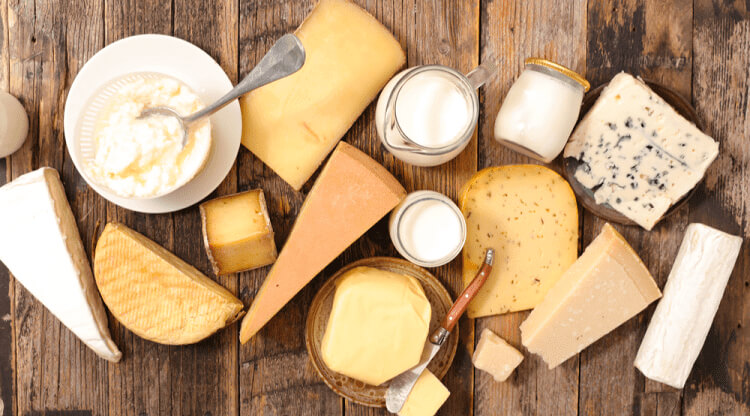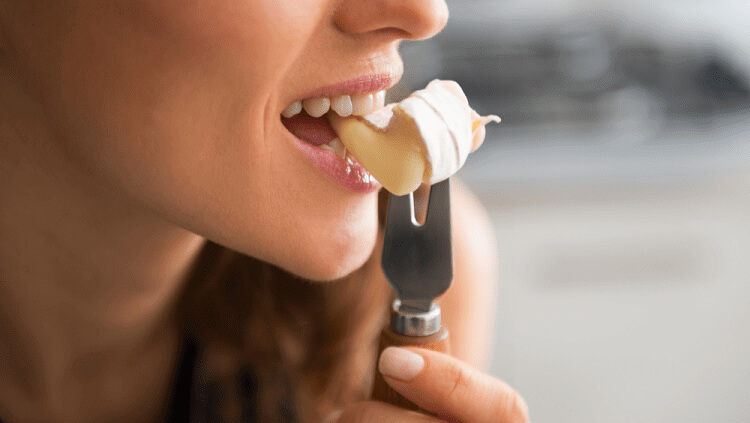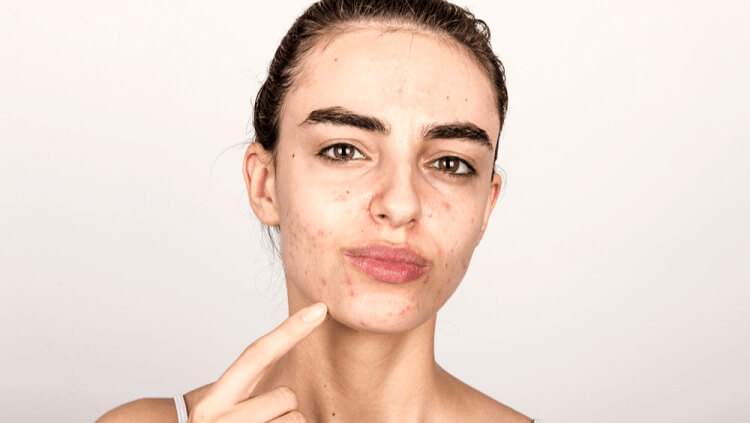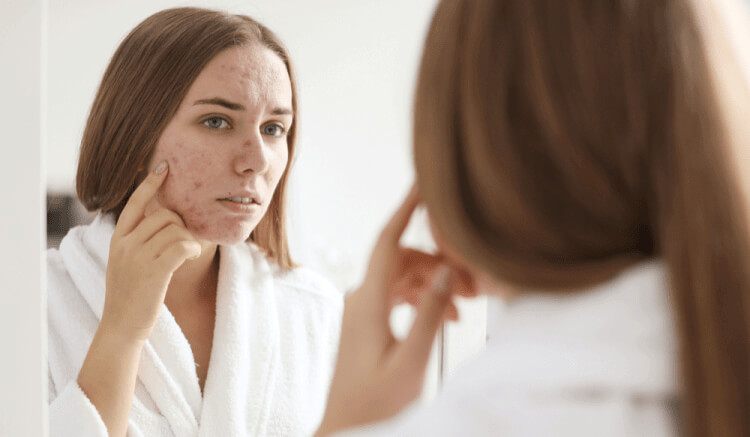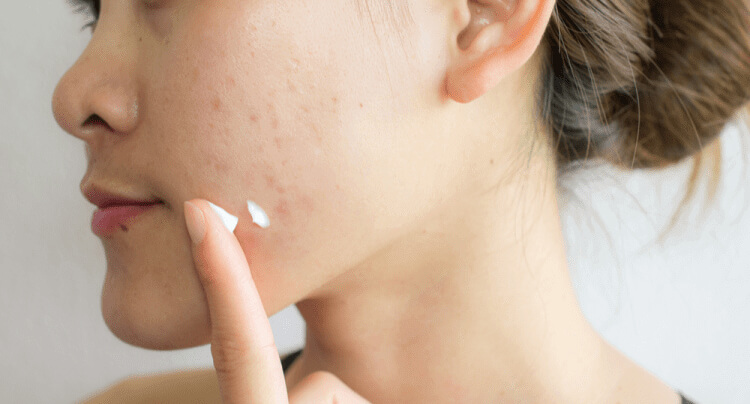What The Researches Say
Starting at square one, let's first understand what acne means. When dirt, dead skin cells, or oil clogs a pore, it becomes inflamed and leads to the formation of pimples or acne. Keeping this definition in mind, we will further move to understand how dairy products cause acne.
Milk & Acne
Cow’s milk can cause inflammation. How?
The milk that reaches our nearby stores comes from dairy cows that are treated with artificial hormones to increase their milk supply. These hormones, along with the hormones already present in the milk, react with testosterone in your body (yes ladies have testosterone in their body as well). This combination can cause hormonal changes leading to breakouts. Furthermore, the human digestive system after infancy finds it hard to break down and digest lactose – the natural sugar present in milk. If you are like the 65% of lactose-intolerant people out there, lactose sensitivity or allergic reactions may be the cause of your acne breakout. Another theory states that the combination of dairy products with a diet high in refined foods and processed sugars disturbs insulin levels, which makes the skin more vulnerable to acne.
The milk that reaches our nearby stores comes from dairy cows that are treated with artificial hormones to increase their milk supply. These hormones, along with the hormones already present in the milk, react with testosterone in your body (yes ladies have testosterone in their body as well). This combination can cause hormonal changes leading to breakouts. Furthermore, the human digestive system after infancy finds it hard to break down and digest lactose – the natural sugar present in milk. If you are like the 65% of lactose-intolerant people out there, lactose sensitivity or allergic reactions may be the cause of your acne breakout. Another theory states that the combination of dairy products with a diet high in refined foods and processed sugars disturbs insulin levels, which makes the skin more vulnerable to acne.
Cheese & Acne
Though studies have proved milk and icecream's association with acne, yogurt and cheese come under the list of dairy products that don't seem to have any connections with acne. Scientists are still confused about why doesn't cheese cause acne, and this is the exact reason why dairy products being the causative agents of acne is so hard to prove. Nevertheless, a part of the theory states that hard cheese contains less lactose than milk, which makes it a safer choice.
Tips To Soothe Acne Breakout
If consuming dairy products has led to an acne flare-up, there are certain things you could do to soothe your skin.
- Rush to the nearby pharmacy and get an over-the-counter treatment. Look for treatments that contain alpha hydroxyl acids and salicylic acid as they help unclog the pores.
- Grab some coconut oil and mix it with a few drops of orange, cinnamon, tea tree, rose, or sweet basil oil. Use it on your skin as an acne-fighting remedy. Coconut oil possesses both anti-inflammatory and antimicrobial properties and is known as a great carrier oil to treat acne.
- After the breakout, stay away from oil-based cleansers and beauty products till the breakout subsides. Focus on keeping your skin dry and clean so that your pores can breathe and heal. Go for water-based makeup remover and oil-free cleansers if you have acne-prone skin.
- As many of your friends and family might have told you, picking or squeezing an acne blemish isn’t the best thing to get rid of it. In fact, picking an acne blemish introduces more bacteria to your skin, and extends the length of the breakout. Be patient after trying over-the-counter as well as DIY remedies and allow your skin enough time to heal.
What Else Causes An Acne Breakout?
If you are truly suspicious about dairy being the causative agent of your acne breakout, try going on an elimination diet. Cut out dairy from your diet entirely and notice how your skin reacts. In case you find that dairy isn’t what’s causing acne, there are plenty of other factors that contribute to a breakout. Fluctuating hormone levels, allergies to makeup or hair products, sensitivities to certain ingredients such as coffee beans, or cocoa, menstrual cycle, etc, can all trigger acne. Additionally, there is also an established connection between acne and stress. Thus, outside circumstances could also be at the play.
The Key Takeaway
According to researches, there have been circumstances when dairy products worsened acne. However, that’s not the case for everyone as we all rock a unique skin type. Also, acne isn’t always going to be associated with dairy products. Thus, experimenting with your diet is worth the while to find out whether dairy products can really affect your skin. Recurring acne can also be indicating an underlying health issue. So, don’t overlook or ignore your acne and consult with a dermatologist at the earliest.

